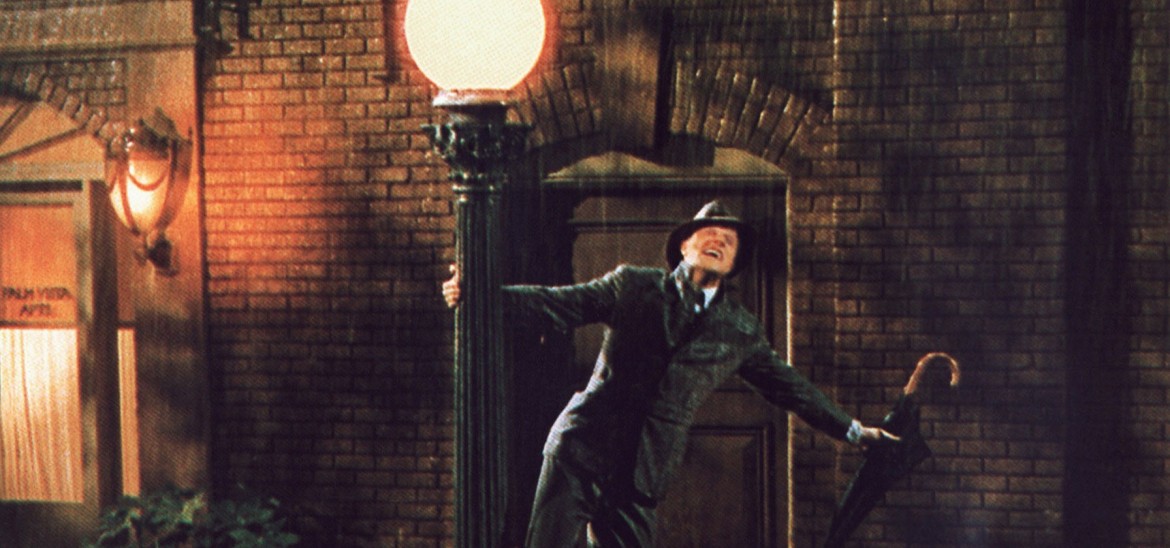Into Film Clubs
Find out everything you need to know about starting an Into Film Club.



Every ten years, Sight & Sound - the esteemed monthly film magazine published by the British Film Institute (BFI) - conducts a poll of critics, journalists, academics, and programmers to discover which titles are voted the 100 Greatest Films of All Time. The results of the 2022 poll were revealed last week on Thursday 1 December.
In 1952 Sight & Sound ran the poll for the first time, with Italian neorealist drama Bicycle Thieves, released just four years prior, coming out on top. For the next five editions, from 1962 through to 2002, Orson Welles' seminal Citizen Kane triumphed. But in 2012, a new champion was crowned, with Alfred Hitchcock's Vertigo triumphing - a full 54 years after it was originally released.
Alongside the critics' poll, since 1992 there has also been a directors' poll, with 358 filmmakers providing their own picks in the 2012 edition. Many of the results were comparable. Citizen Kane topped the Directors' list in both 1992 and 2002, and just as it did in the critics' poll, it also slipped from the number one spot in 2012. However, it wasn't Vertigo that ousted it at the top of the Directors list, but rather 1953's Tokyo Story, directed by Yasujiro Ozu (Citizen Kane finished joint 2nd alongside 2001: A Space Odyssey).
With almost double the number of participants polled compared to 2012 - 1,639 contributors each submitted a top ten - this latest poll has resulted in a disruption of perceived status quo, an outcome gratefully received by many in the film world who felt that previous lists (and similar polls run by other publications) always resulted in the same films coming out on top and an overemphasis on films from white, male directors working in the English language.
Surprising many, the new winner is Jeanne Dielman 23, quai du Commerce, 1080 Bruxelles, an experimental Belgium-France co-production from filmmaker Chantal Akerman, the first time a female filmmaker has even appeared in the top ten, let alone coming out on top. The full top ten is as follows:
There are 22 countries represented in the full list, including six British productions/co-productions: The Shining, A Matter of Life and Death, The Red Shoes, The Third Man, Barry Lyndon, and 2001: A Space Odyssey.
Just four films released in the decade since the 2012 poll immediately jumped into the top 100. These are Get Out, Parasite, Moonlight, and Portrait of a Lady on Fire. Such an outcome perhaps suggests one of two things: that the state of modern cinema is not as strong as it has been in the past, or, perhaps more optimistically, that great films take time to percolate and establish themselves in people's minds. Young film fans may wish to discuss this and put forward their own suggestions for films they would have included, were they to have a vote.
As well as film critics, Sight & Sound also canvas the world's leading directors, to find out what their most revered films are. And there's also a new winner in the directors' list, as Stanley Kubrick's 2001: A Space Odyssey raced ahead of Citizen Kane to the top spot, while the 2012 winner had to share 4th place with critics' poll winner Jeanne Dielman 23, quai du Commerce, 1080 Bruxelles. The top ten films according to the 480 directors polled are:
In 2020, we collaborated with our partners at the BFI to produce our own list, the 50 films you should see by the age of 15. No rankings were applied to those selections, but it is notable that many of the chosen films have also found their way into the "grown up" poll, including The 400 Blows, Pather Panchali, Kes, Night of the Hunter, and a double-bill of Studio Ghibli magic in Spirited Away and My Neighbour Totoro.
This offers further proof that "great" films need not be the exclusive preserve of older audiences, and that the films we experience as youngsters should be treated as seriously as all other genres, offering seminal experiences that we carry forward into the rest of our lives.
Ultimately, the films that triumph (or don't) in such polls is not the main purpose of such exercises; their point is to provoke conversation and debate, with people fervently debating why their favourite film was left off the final selection, or expressing incredulity over those that did make the cut. After all, who has ever seen a poll and found themselves agreeing with it entirely?
Most people, when pressed to identify their favourite films, would probably select something different each time they were asked. What exercises like the Sight & Sound poll enable us to do, however, is to perhaps be bolder and more adventurous in our own film choices, seeking out titles from across the world that we might not otherwise have heard of, let alone seen. And perhaps these titles will find their way into our own selections in the future, together with future masterpieces that have not even been conceived of yet. It is this ever-expanding canvas that keeps cinema relevant and exciting, responding to our own evolving tastes, as well as those of the world around us.
We're also pleased that a number of films which landed in the top 100 across the two lists are available for schools to stream for free* with Into Film+.
Keep a further eye out, as we will also be adding more titles from the list to the Into Film+ service before Christmas.
* Screenings for an entertainment or extra-curricular purpose require a PVS (Public Video Screening) Licence from Filmbankmedia. State-funded schools in England are covered by the PVS Licence.
Viewing 4 of 4 related items.

Find out more about our streaming service, designed specifically for UK schools.